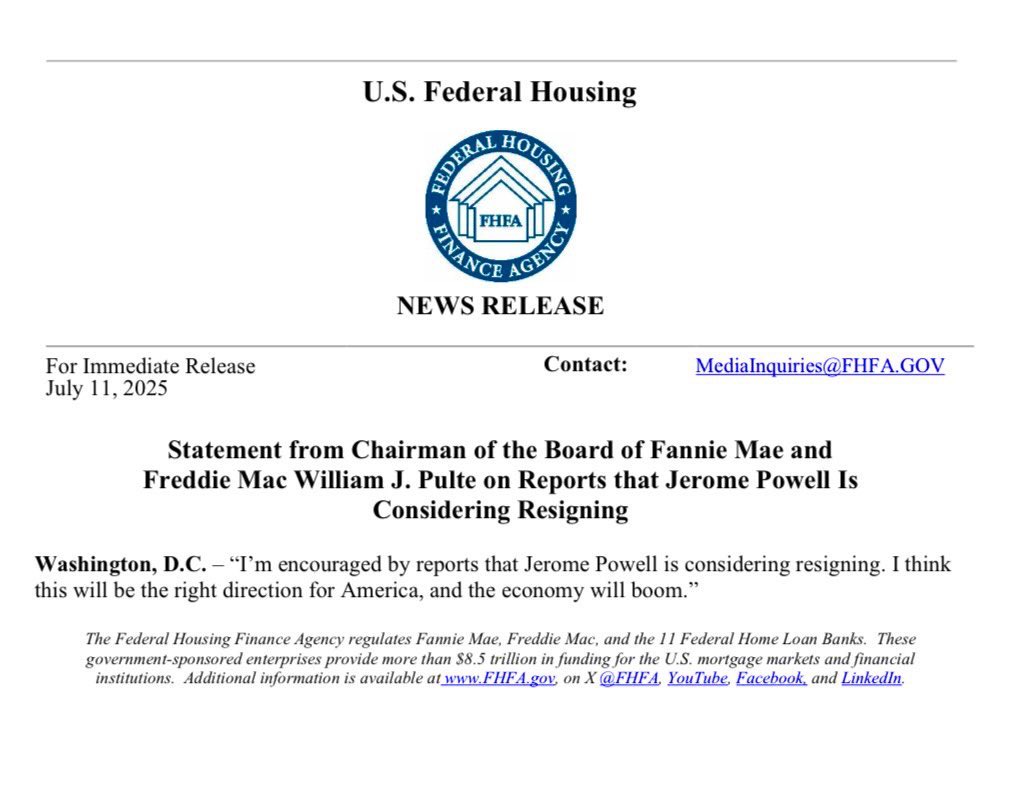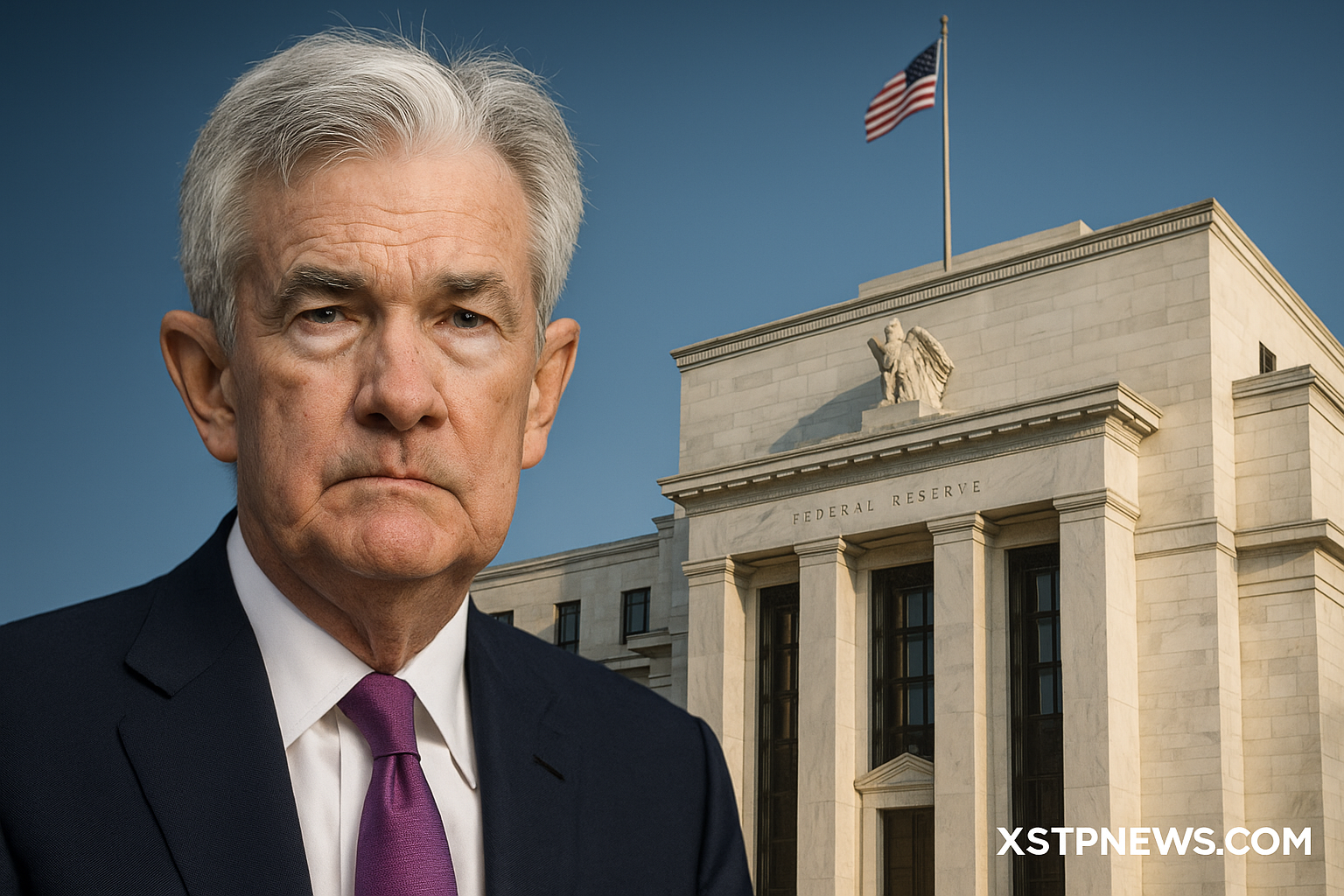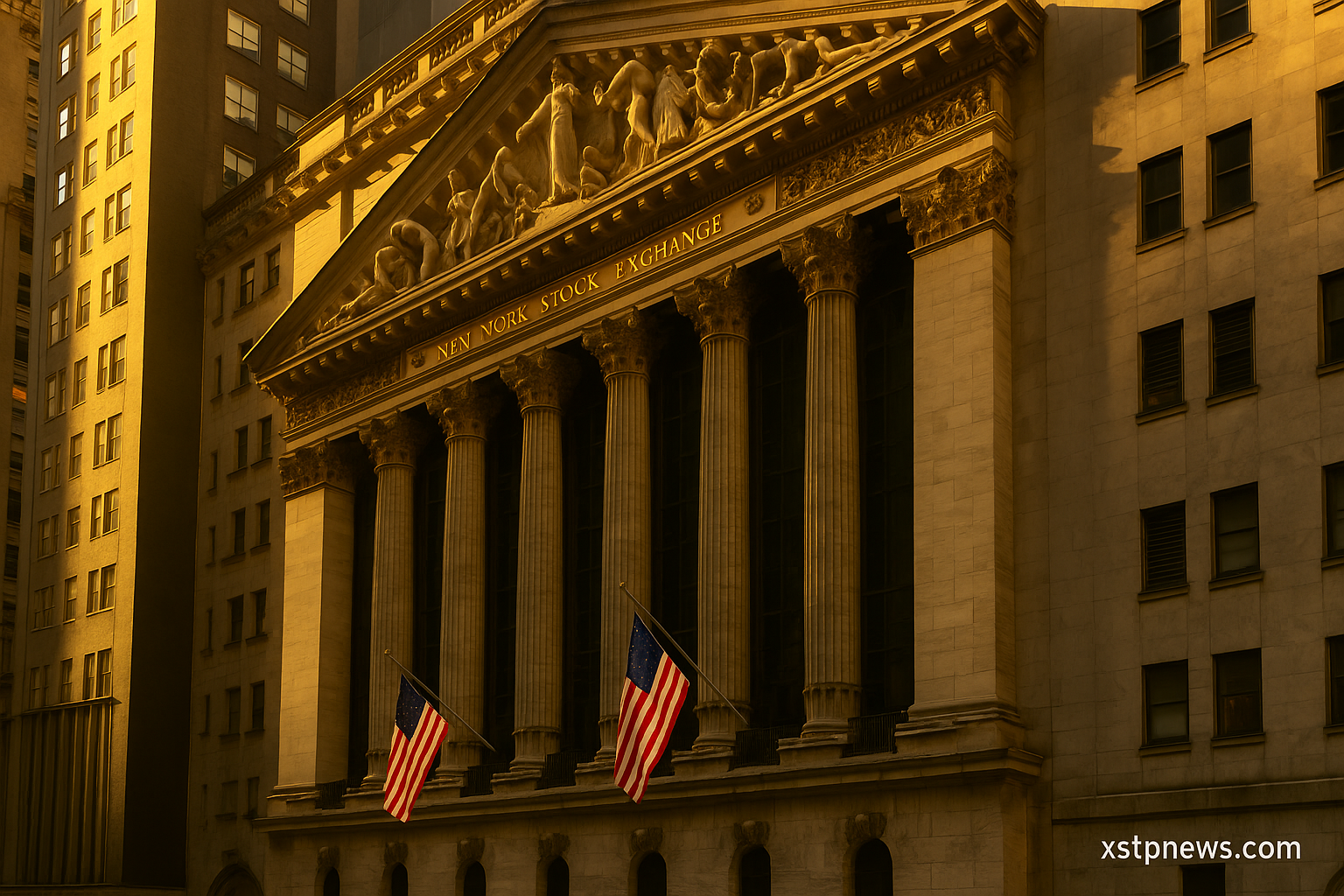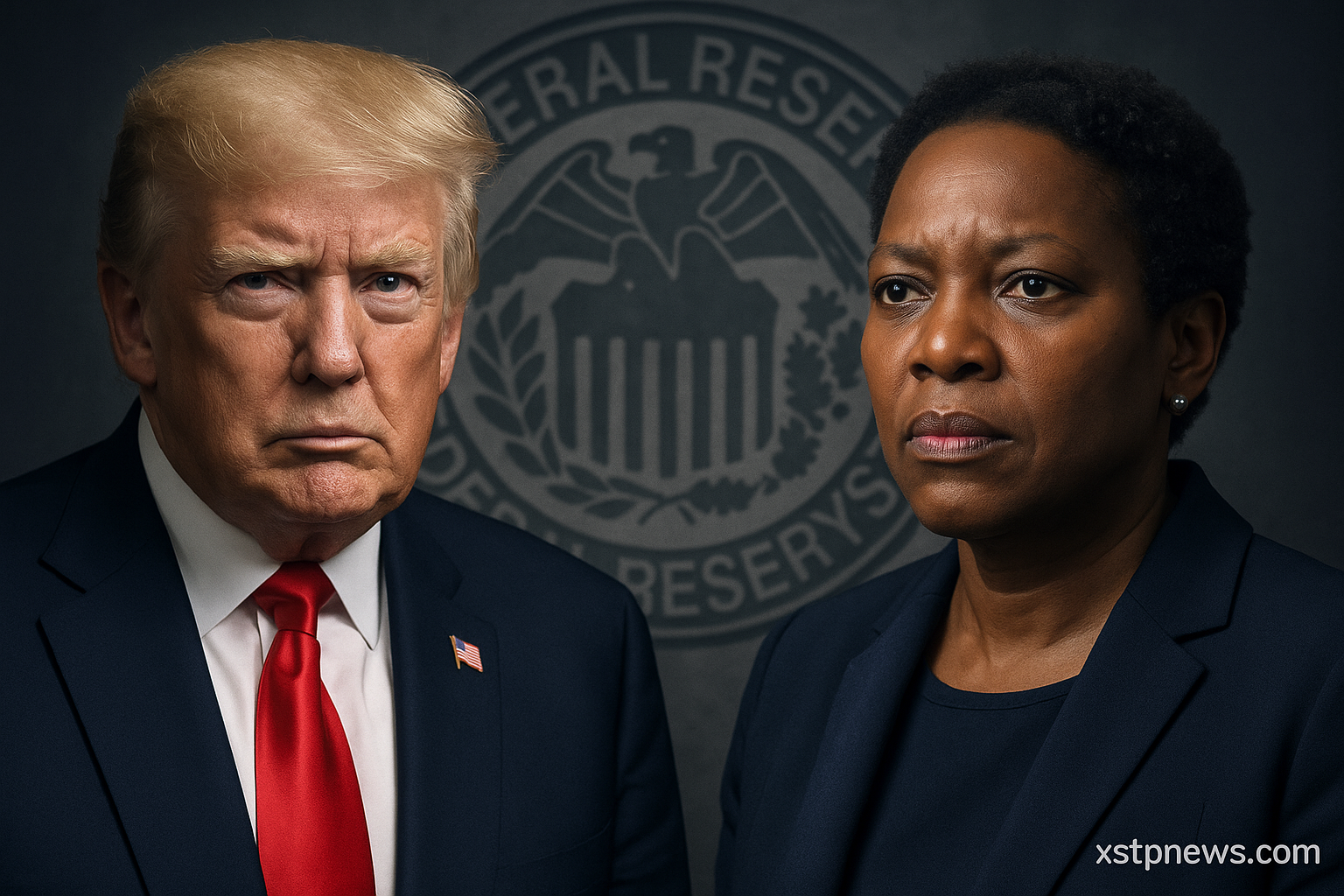Federal Reserve Chair Jerome Powell is reportedly considering stepping down, sparking debate and uncertainty across markets. The news stems from statements by William Pulte, director of the Federal Housing Finance Agency, who publicly raised concerns over the timing and reasons behind such a move.
Political pressure and massive cost overruns
Pulte highlighted issues surrounding a $2.5 billion renovation of the Fed’s Washington headquarters. The project is under fire for allegedly extravagant finishes and has exceeded its initial budget by $700 million. Both the White House and the Office of Management and Budget have criticized how the project was presented to Congress. Powell has denied that the renovations include luxury elements, yet scrutiny continues to intensify.
Market reaction and broader legal context
Following Pulte’s remarks, the S&P 500 dipped by 0.3%, reflecting investor caution about leadership instability at the world’s most influential central bank. Meanwhile, Bitcoin saw a brief surge as traders speculated that a change at the top could lead to a more dovish stance on interest rates. Political opponents have accused Powell of mismanaging taxpayer funds and misleading lawmakers, while his supporters argue that the Fed’s independence is legally protected. Powell himself has indicated he plans to serve out his term through May 2026.
What’s at stake for the Fed and global markets
A leadership shakeup could alter the trajectory of monetary policy, potentially accelerating interest rate cuts that would reshape inflation and growth expectations. It also raises questions about financial market confidence, as any perception of the Fed becoming politicized might erode trust in its ability to steer the economy objectively. Early speculation on potential successors has pointed to figures like Kevin Warsh, Scott Bessent and Kevin Hassett, each signaling different possible strategic shifts.








